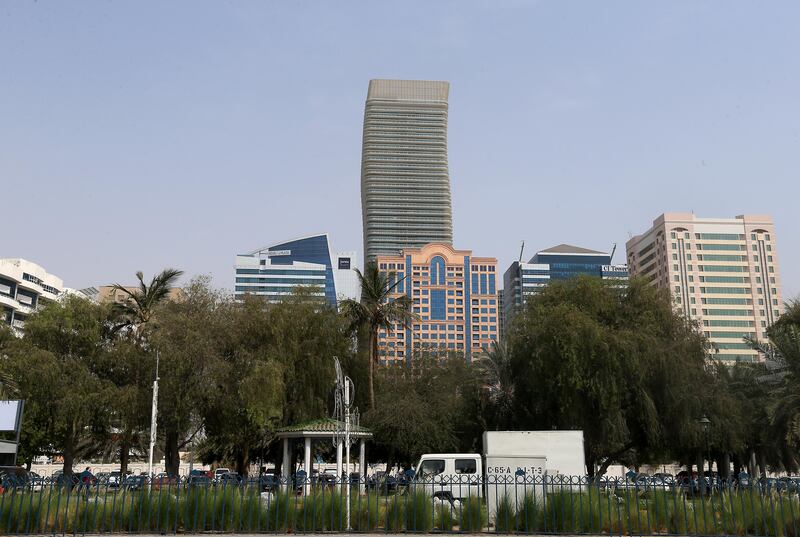Abu Dhabi’s property market is showing little sign of improvement, with the subdued economic climate leading to further declines in demand for new homes and office space, according to a new report.
A “combination of increased living costs, cuts in housing allowances and less certainty in the jobs market” is likely to continue pushing residential market rents downward, according to JLL’s Abu Dhabi Market Overview for the second quarter of 2017.
Rents for a typical two-bed apartment dropped 10 per cent year-on-year, to Dh142,300, the report states. Average villa rents are down by 9 per cent, while sales prices for apartments slid 4 per cent year-on-year and average villa prices by 9 per cent.
JLL said that 900 new homes were delivered within the past three months, taking the current total to 250,000 homes. It said 4,000 new homes are due to come on to the market by the end of the year – mainly in Reem Island, Saraya and the Corniche, but warned that “previous trends suggest that a significant proportion of this will be delayed at the final stages of approval and handover" as a result of current market conditions.
The office market is also suffering from lower demand, with about 900 jobs in the banking sector having been cut over the past 12 months, JLL said, citing figures from the Statistics Centre Abu Dhabi. Hiring activity is also declining.
JLL said that the amount of vacant office space has increased by 2 per cent year-on-year, to 22 per cent of total space. Rents for Grade A space have also dropped by 2 per cent to Dh1,760 per square metre, and Grade B rents have fallen by 5 per cent to Dh1,030.
Andrew Chambers, the chief executive of MPM Properties, argues that rents and price declines "have largely bottomed out" in the housing market, with net yields stabilising at between 5.5 and 6.5 per cent.
He said that it still anticipates “downward pressure during the summer months” as landlords prioritise securing tenants over rent increases ahead of the new school year. Although renewals on existing leases are mainly being agreed at current rental levels, the number of new leases being agreed are down by about 10 per cent year-on-year, with many tenants becoming more cautious and staying put in their homes.
Sales volumes for completed homes are 10 to 15 per cent down over the past year, but this "has been offset by the increased investment in off-plan apartments and villas", said Mr Chambers.
“As large-scale developments on Yas Island and Saadiyat Island, directed at mid-income consumers, come on stream over the next year, we expect to see a noticeable increase in sales volumes in 2018,” he said.
“Developers in Abu Dhabi are already responding to structural changes in the economy with revised projects that are tailored to meet consumers’ expectations,” Mr Chambers said, citing a greater focus on mid-income housing and the offer of more generous payment plans.
“Such developments are clearly meeting customer demand, and we anticipate an improvement in property sales towards the next nine to 12 months, with an improved market emerging by mid-2018.”






